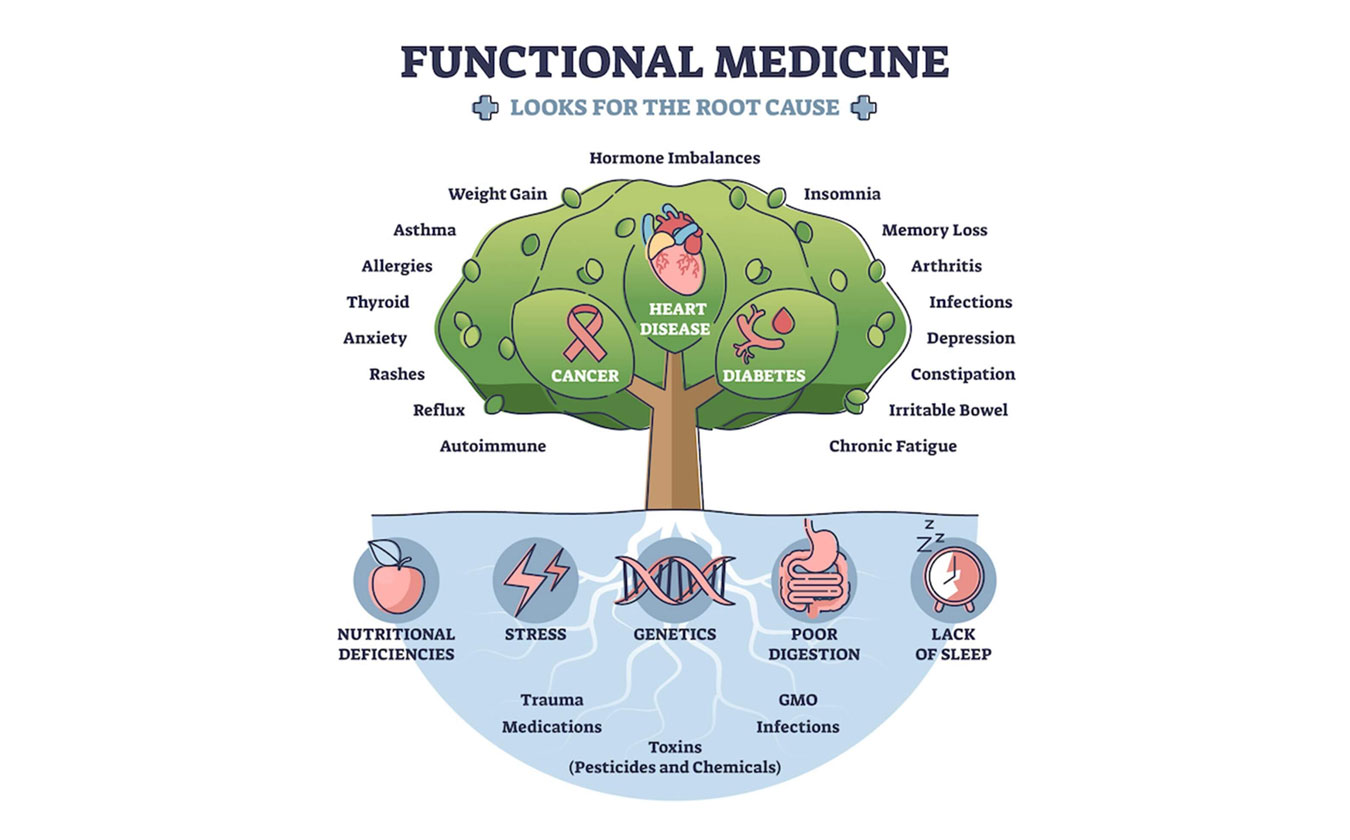What is Functional Medicine?
Functional Medicine is a personalized, patient-centered, science-based approach to healthcare that addresses the gaps in the conventional healthcare system. It empowers patients and practitioners to work together to identify and treat the root causes of illness, using a holistic lens that considers personal history, genes, diet, environment, and the social determinants of health. By understanding the full picture, functional medicine helps restore health and well-being.
Why do we need Functional Medicine?
Our current health care model fails to address the causes of and the solutions for chronic disease. We segregate lifestyle medicine from clinical care and fail to recognize the urgent need for a model that reverses illness, promotes health, and optimizes function.”
Principles of Functional Medicine:
Evidence Based:
Builds on conventional healthcare practices by incorporating the latest scientific research and emerging integrative health insights.
Systems-oriented and holistic
Views the body as an interconnected system where an imbalance in one area can adversely affect other areas, including genes, environment, diet, and lifestyle.
Cost-effective
Proactively identifies and efficiently addresses the root causes of illness, which can be more cost-effective in the long run than reactively treating each new symptom.
Patient-centered
Providers invest time in listening to patients’ stories, ensuring they feel heard, and involving them in decision-making.
Collaborative
Empowers patients, practitioners, and the broader care team to work together in identifying root causes, overcoming barriers, and implementing necessary dietary and lifestyle changes.
Prevention-focused
Emphasizes a wellness-based approach that proactively promotes optimal health rather than reactively responding to illness.
Individualized
Moves away from one-size-fits-all treatments by customizing care plans to fit each patient’s history, lifestyle, and environment. Much like health coaching, the patient is treated individually with consideration given to their unique background.
Within this paradigm, practitioners often focus on specific topics, including:
- Nutrition, food reactions, and weight management
- Digestion and the microbiome
- Inflammation and immunity
- Stress
- Hormones
- Sleep
- Energy, movement, and exercise
- Brain health
- Mitochondrial function
- Toxin exposure
- Mental health and mood
What Are the Benefits of Functional Medicine?
“The scope and cost of chronic disease continue to rise. Functional medicine has proven to reverse this trend by providing better outcomes and cost savings for both patients and the healthcare system in the long term.” Reference: Institute for Functional Medicine (IFM)










This Post Has 3 Comments
test
hello
hello again
Comments are closed.